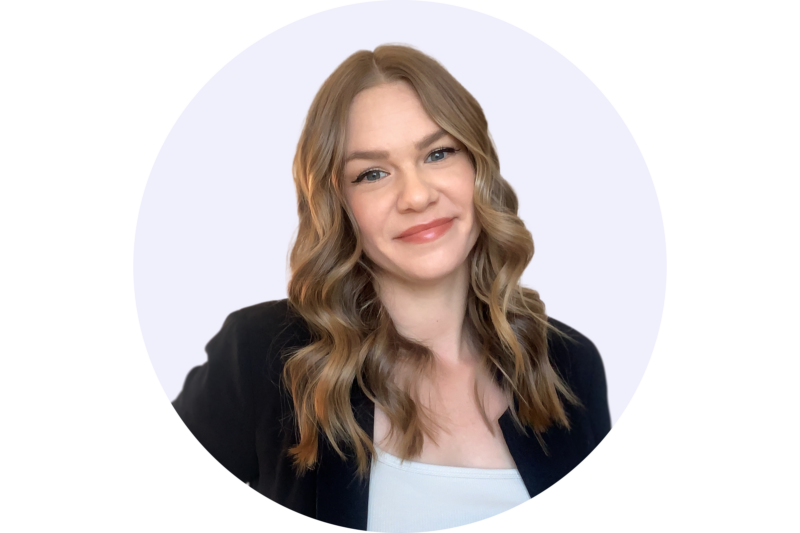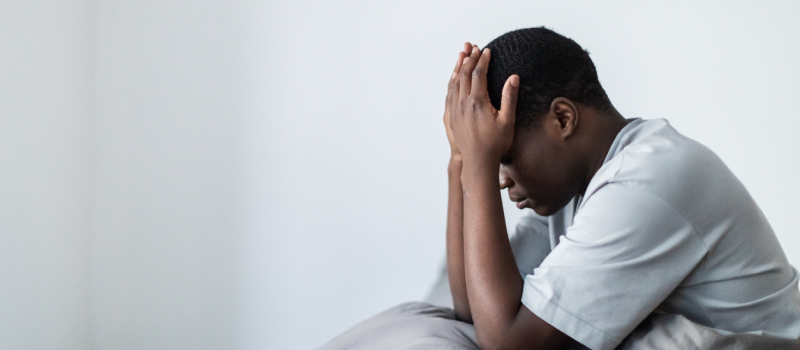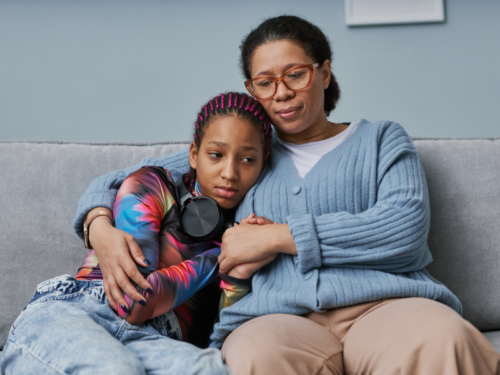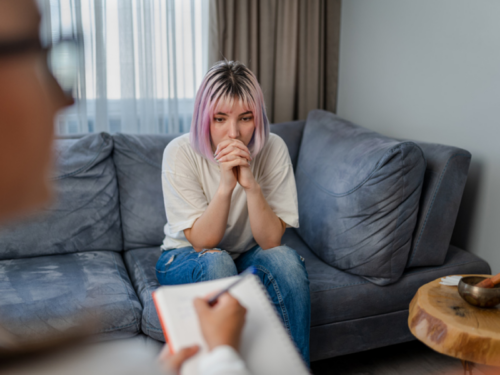
Table of Contents
Is “Crippling Depression” a Real Mental Health Condition?

Written By: Alex Bachert, MPH

Clinically Reviewed By: Sarah Lyter
August 13, 2024
6 min.
Major depressive disorder (MDD) is sometimes called “crippling depression.” Learn the difference between crippling and clinical depression, plus leading treatment options.
Learn more about our Clinical Review Process
Table of Contents
Depression is a serious mood disorder that negatively impacts how people think, feel, and act. Recent data suggest that nearly three in ten U.S. adults and teens have been diagnosed with depression at some point in their lives, and approximately 18% of people are experiencing depression right now.
But while depression is common in the U.S., it’s important to note that it may look a little different for each person. Some people experience high-functioning depression, which means that they’re still able to maintain their daily routines and responsibilities. For other people, their depression is severe enough to significantly impact their ability to function and can even lead to suicidal thoughts. This is sometimes referred to as “crippling depression.”

Virtual intensive therapy for depression
Get depression treatment from the comfort of home.
What is crippling depression?
When people talk about crippling depression, they’re usually referring to depression that is severe enough to restrict their daily functioning. “Crippling and debilitating depression can be appropriate terms to describe symptoms of depressive moods and its impact,” says Tracye Freeman Valentine, LPC-MHSP, Clinical Supervisor with Charlie Health. Typically, the term is used to describe a mental illness called major depressive disorder (MDD) or clinical depression. For someone with MDD, even basic tasks like making dinner, meeting with friends, and taking a shower can seem unmanageable.
Is crippling depression an official diagnosis?
Although the term crippling depression is commonly used, it’s important to recognize that it’s not an official medical diagnosis. “The term crippling depression is a subjective term that is often transposed with severe depression; however, clinically, it is not recognized as a designation for either major depressive disorder or persistent depressive disorder,” says Valentine.
And actually the term crippling depression is actually considered to be inappropriate and offensive to people with disabilities. According to Merriam-Webster, the word cripple is defined as “being disabled, flawed, or imperfect.” And since it was previously used as a derogatory term for people with disabilities, it’s best to use more sensitive language when describing symptoms of depression. For example, severe depression can be described as overwhelming, devastating, debilitating, or extreme instead.
Signs & symptoms of crippling depression
The signs and symptoms of MDD vary based on the person. Some people may have a single episode that lasts only a few weeks, while others will experience multiple depressive episodes throughout any given year. In order to be diagnosed with MDD, a person must have five or more of the following symptoms for at least two weeks, with at least one of the symptoms being a depressed mood or a loss of interest in activities.
- Consistent depressed mood
- Loss of interest in most or all activities
- Significant changes in weight, appetite, or sleep
- Slowed mental processes and reduced physical movement
- Low energy, tiredness, or fatigue
- Feelings of guilt or worthlessness
- Trouble concentrating
- Recurring suicidal thoughts or thoughts of self-harm
Remember: if you or a loved one are experiencing suicidal thoughts or are in danger of harming yourself, this is a mental health emergency. Contact The Suicide & Crisis Lifeline 24/7 by calling or texting 988. MDD can also cause a range of physical health complications, including:
- Gastrointestinal issues
- Insomnia
- Headaches
- Muscle and joint pain

Depression Extends Beyond the Mind: Physical Symptoms of Major Depressive Disorder
Charlie Health Editorial Team
What causes clinical depression?
MDD is a complex mental health condition, and experts are still looking into causes, but leading theories suggest that there are various biological and environmental risk factors for clinical depression. These include:
- A family history of depression or mental illness
- Adverse childhood experiences
- Substance abuse issues
- Chronic pain or illness
- Poor coping skills
- Lack of social support
- Major life events, such as death of a loved one or losing a job
How to manage clinical depression
Suffering from debilitating depression can make it difficult to get out of bed in the morning, let alone figure out how to manage your symptoms. However, getting access to appropriate resources and support is an important step in understanding depression and managing your well-being. If you or someone you know is showing signs of MDD or another depressive disorder, consider speaking with a mental health professional about depression treatment.
1. Talk therapy
Talk therapy or psychotherapy, provides people with a safe space to identify, address, and manage issues that may be impacting their mental health and well-being. Two of the most effective forms of talk therapy for clinical depression are cognitive behavioral therapy (CBT) and interpersonal therapy (IPT). CBT helps people learn to identify negative thought patterns contributing to depression and replace them with more empowering alternatives, while IPT teaches strategies for handling relationship issues that stem from depression.
2. Medication management
Depending on the severity of your depression, your mental health provider may suggest adding medication like an antidepressant to your treatment plan. Antidepressants, such as selective serotonin reuptake inhibitors (SSRIs) and serotonin-norepinephrine reuptake inhibitors (SNRIs), are designed to reduce symptoms of severe depression and help people feel more emotionally stable. Some research even suggests that combining therapy and medication is more effective than either treatment on its own.
3. Alternative therapies
Brain stimulation therapy may be another option for people who don’t see improvement with talk therapy or medication. These techniques use electricity, implants, or magnets to activate parts of the brain associated with mental health symptoms.
One example is electroconvulsive therapy (ECT), which treats MDD by using electrical currents to induce controlled seizures. ECT is considered highly effective, leading to substantial improvement in approximately 80% of people with severe major depression. A less invasive option is repetitive transcranial magnetic stimulation (rTMS), which places magnetic fields against a person’s scalp to stimulate nerve cells in the brain to improve depressive symptoms.
4. Lifestyle changes
When learning how to manage debilitating depression, it can be helpful to make small but empowering changes to your daily routine. Below are several examples of healthy lifestyle changes to complement your treatment plan.
Create healthy goals
If life feels overwhelming, try breaking your tasks into smaller, more manageable goals. For example, instead of hosting a party for everyone you know, start by calling a close friend on the phone. It may sound simple, but taking the time to respect your boundaries and celebrate small achievements can help you regain confidence and restore your well-being.
Practice mindfulness and mediation
Meditation is a valuable tool for managing depressive symptoms like stress and negative thinking. It can also help improve mood, sleep, and self-awareness. If you’re new to meditation, here are two exercises to get you started.
- Choose a word or phrase that you can repeat to help ground and center you during difficult moments. Some examples include “let go” and “calm.”
- Try a body scan to bring awareness to the present moment. To start, focus on each body part — from the top of your head to your toes — without judgment.
Seek social support
Spending time with others plays an important role in managing debilitating depression. In fact, research suggests that loneliness and isolation can have a negative impact on a person’s mental health and recovery process. While it may be tempting to self-isolate, connecting with family, friends, mental health professionals, and support groups can all support your healing journey.

Manage your depression with Charlie Health
If crippling depression is taking a toll on your mental health and overall quality of life, Charlie Health is here to help. Charlie Health’s virtual Intensive Outpatient Program (IOP) provides more than once-weekly mental health treatment for people dealing with serious mental health conditions, ranging from mild depression to more severe depressive disorders. Our expert clinicians are trained in treating clinical depression and know how to incorporate evidence-based therapies into individual counseling, family therapy, and group sessions to help people feel their best. Fill out the form below or give us a call to start healing today.
References
https://news.gallup.com/poll/505745/depression-rates-reach-new-highs.aspx
https://www.ncbi.nlm.nih.gov/books/NBK519712/table/ch3.t5/
https://www.nimh.nih.gov/health/topics/depression
https://www.ncbi.nlm.nih.gov/books/NBK361016/
https://www.uptodate.com/contents/depression-treatment-options-for-adults-beyond-the-basics/print
https://www.nami.org/About-Mental-Illness/Treatments/ECT-TMS-and-Other-Brain-Stimulation-Therapies/




